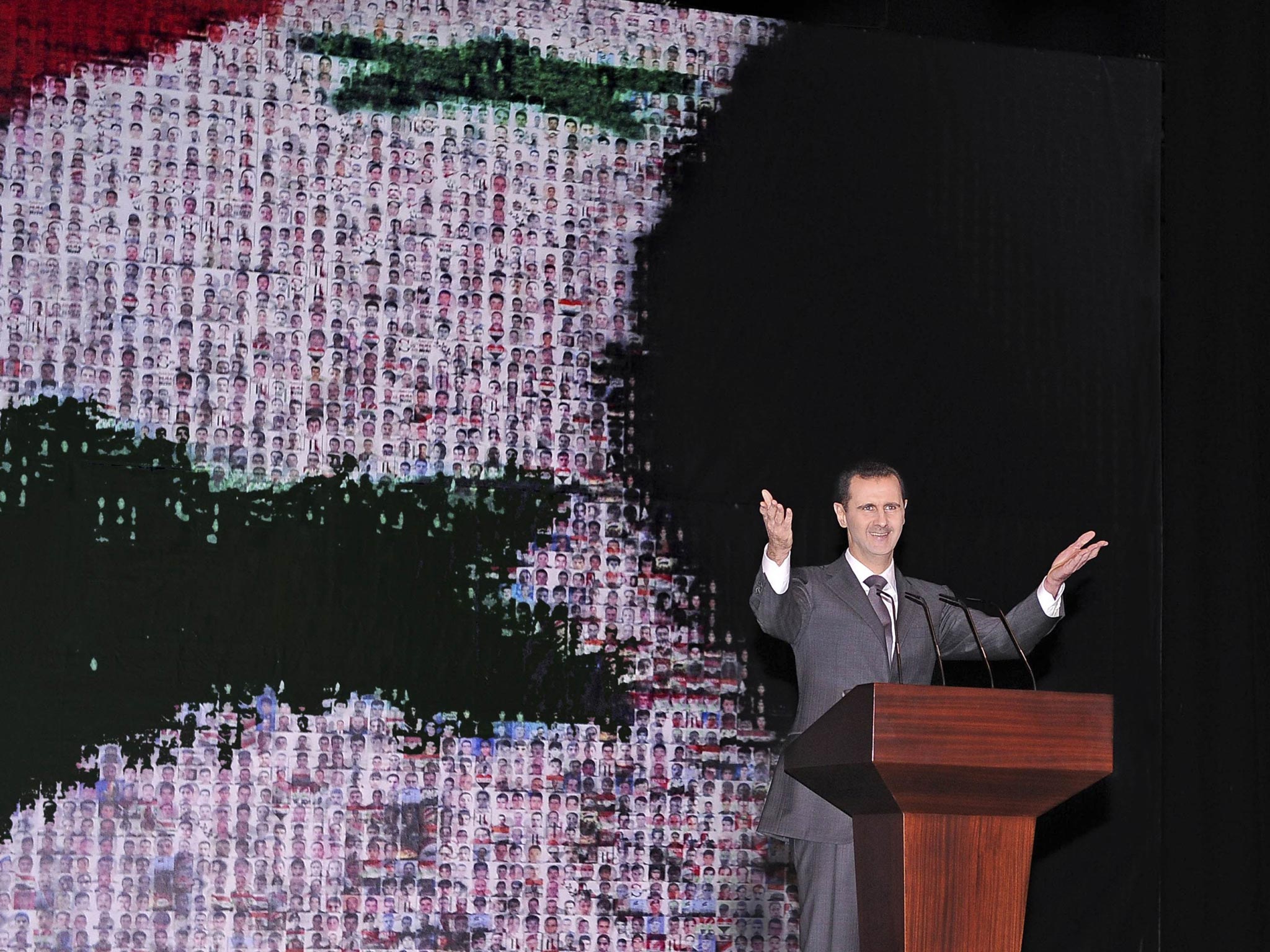Weapons of mass distraction: The hazards of ridding Syria of its chemical arsenal
As the Syrian regime shifts the deadline for disposing of chemical weapons, the US ambassador to the UN claims it is stalling. But with rebels attacking convoys, the situation is complicated

The US ambassador to the United Nations has launched a broadside against the Assad regime in Syria for its tardiness in complying with the programme to remove its stockpile of chemical weapons, despite the government in Damascus recently accelerating the timetable for their destruction.
“Syria refusing to seriously negotiate & is (about) to miss another deadline,” Samantha Power tweeted on Wednesday evening. “Good that #Syria finally began moving chemical weapons, but curious it does so only when there’s a looming @UN or @OPCW meeting” she added.
The Organisation for the Prohibition of Chemical Weapons (OPCW) was put in charge of the removal of Syria’s chemical weapons following the large scale chemical weapons attack in Ghouta on 21 August last year and under an ambitious timetable, all chemical weapons were supposed to have left the country by 4 February, but the deadline has been moved back to the end of June. After seeking another delay as recently as two weeks ago, the Syrian government has backtracked again and said it will get rid of all weapons by the end of April.
The Syrian government has blamed bad weather and the security situation in the country for the delay in meeting deadlines. There were two attacks on UN chemical weapons convoys on 27 January.
Security is a real issue for the movement of the chemicals, and the Syrian government has requested more equipment in order to deal with potential breaches of security such as roadside bombs.
The Syrian Army is being forced to commit a huge amount of troops and resources to the ‘monster convoys’ transporting the weapons according to Hamish de Bretton-Gordon, COO of Secure Bio. “The Syrian army is having real dramas moving this stuff. The opposition doesn’t want it out, it’s a very easy target.”
Last month, Angela Kane, the UN High Representative for Disarmament, praised Syria’s role in the process in an address she gave in New York. The government allowed 21 out of 23 of its sites to be inspected before an earlier deadline and allowed another site to be inspected through the use of sealed cameras operated by Syria. One site has remained inaccessible due to the “local security situation” as Ms Kane put it.
Nevertheless, the security situation has also become a convenient excuse to keep the chemical weapons as a “massive bargaining chip” with the international community, says Mr de Bretton-Gordon. “Are they stalling? Absolutely. If you look at the timelines, all the timelines have been missed. We’re on 26 per cent on 6 March, everything should have been out by the 4 February. Every timeline has been missed.”
In addition to security, the fact that the opposition is not on board has caused problems. Ms Kane mentioned negotiating with different factions as one of the main obstacles to the OPCW carrying out its work.
This situation applied in much of the country, including locations where chemical weapons were used or stored, she noted. “For the investigation, to visit a single neighbourhood, we would have to negotiate and coordinate access with up to 40 different groups, moving from checkpoint to checkpoint.”
The OPCW mission in Damascus declined to comment on Ms Power’s remarks.
Sigrid Kaag, the Dutch diplomat leading the mission, said that she felt the end of June deadline for total destruction of the country’s chemical weapons is still feasible. Following criticism from international actors, most notably the Pentagon, Syria has agreed to a 60-day timetable to accelerate and intensify its efforts. “We anticipate a lot of action in the month of March,” Ms Kaag said.
Earlier this week, the UN Human Rights Council’s Special Commission of Inquiry on Syria said the evidence of the al-Ghouta chemical weapons attacks “indicated that the perpetrators likely had access to the chemical stockpile of the Syrian military, as well as the expertise and equipment necessary to manipulate safely large amount of chemical agents”. It is investigating another 20 incidents of chemical weapons use.
Following global outrage, Russia and America struck a deal with Syria in September to destroy its chemical weapons arsenal in return for the US not reacting with air strikes to what it had previously indicated was a ‘red line.’ The al-Ghouta attack, which activists claim killed over 1,200 people, is the largest chemical weapons attack in 25 years.
Since then, Syria has declared more than 1,300 tonnes of chemical weapons, including mustard agent, precursors for Sarin and other chemical weapons components. By the end of this week over a third, including all stocks of mustard gas, will have been shipped out of the country, leaving from the port of Latakia.
Subscribe to Independent Premium to bookmark this article
Want to bookmark your favourite articles and stories to read or reference later? Start your Independent Premium subscription today.

Join our commenting forum
Join thought-provoking conversations, follow other Independent readers and see their replies